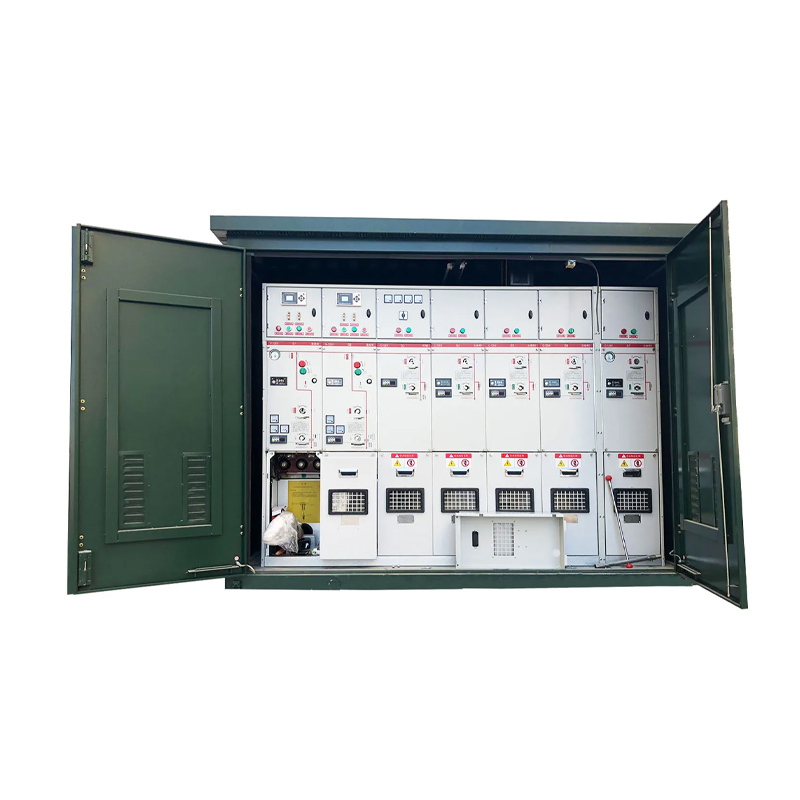
Solutions to Condensation Issues in Outdoor Ring Main Units (RMU)
Outdoor Ring Main Units (RMUs) are prone to condensation, especially in environments with high humidity and significant temperature variations. Condensation can compromise equipment safety and operational efficiency and may even lead to electrical faults. This article explores the causes of condensation, its risks, and detailed solutions to help users mitigate such issues in practical applications.

1. Causes of Condensation in Outdoor RMUs
- High Environmental Humidity
- Outdoor RMUs are often exposed to humid conditions, especially during the rainy season, in coastal areas, or near bodies of water. Humidity above 70% can easily lead to condensation.
- Large Temperature Fluctuations
- Significant temperature differences between day and night cause water vapor in the air to condense into droplets inside the RMU.
- Poor Sealing
- Inadequate sealing, such as aging or improperly installed sealing strips, allows moisture to enter the RMU.
- Insufficient Internal Heat
- Lack of internal heat sources to counteract temperature drops causes the RMU’s internal temperature to fall below the dew point, resulting in condensation.
2. Risks of Condensation in Outdoor RMUs
- Reduced Insulation Performance
- Condensation forms conductive water films on insulation surfaces, reducing insulation performance and potentially causing short circuits.
- Corrosion of Metal Components
- Moisture accelerates corrosion of metal components, shortening the service life of the RMU.
- Electrical Faults
- Condensation can lead to tripping, leakage, and other faults, disrupting power supply stability.
- Decreased Operational Reliability
- Frequent issues caused by condensation increase maintenance costs and reduce system reliability.
3. Solutions to Condensation in Outdoor RMUs
(1) Improve Sealing Performance
- Use High-Quality Sealing Strips
- Apply high-elasticity, waterproof sealing strips on cabinet doors and seams. Regularly inspect and replace aging components.
- Upgrade Protection Level
- Choose RMUs with a protection rating of IP54 or higher to minimize moisture ingress.
- Seal with High-Quality Adhesives
- Apply weather-resistant sealing adhesives to welded and joint areas to enhance overall sealing.
(2) Install Dehumidification and Heating Devices
- Dehumidification Devices
- Install automatic dehumidifiers that activate based on internal humidity levels to maintain optimal conditions.
- Desiccants: Place silica gel or molecular sieve moisture-absorbing bags inside the RMU and replace them regularly.
- Heaters
- Install thermostatic heaters to maintain internal temperatures above the dew point (recommended range: 15°C-20°C).
- Use temperature controllers to optimize heater operation and reduce energy consumption.
(3) Optimize Ventilation Systems
- Install Rainproof Vents
- Install ventilation openings with dust filters and rain shields at the top or sides of the RMU to maintain airflow while preventing moisture ingress.
- Forced Ventilation
- Use small fans to create forced air circulation, removing excess moisture from the cabinet.
(4) Apply Anti-Condensation Coatings
- Waterproof Coatings
- Apply waterproof coatings to insulation components to minimize water vapor adherence.
- Anti-Corrosion Coatings for Metal Parts
- Use corrosion-resistant materials or coatings for metal structures to extend equipment service life.
(5) Monitor Humidity and Temperature
- Humidity Sensors
- Install humidity sensors inside the RMU to monitor conditions in real time and detect abnormal humidity levels.
- Alarm Systems
- Equip the RMU with an alarm system that alerts operators when humidity exceeds safe levels, prompting timely corrective actions.
4. Daily Maintenance Tips
- Regularly Check Seals and Drainage Holes
- Ensure sealing strips are intact, and drainage holes remain unblocked.
- Clean Dust and Debris
- Regularly clean the RMU interior and exterior to prevent dust and debris from trapping moisture.
- Replace Desiccants
- Ensure desiccants are effective by replacing them before they become saturated.
- Inspect Heating and Ventilation Equipment
- Regularly test heaters and ventilation devices to ensure proper functionality and replace faulty equipment promptly.
5. Optimization Summary
- Primary Keyword: Outdoor Ring Main Unit
- Long-Tail Keywords: Outdoor Ring Main Unit condensation solutions, outdoor RMU moisture control, outdoor RMU anti-condensation devices
By improving sealing performance, installing dehumidification and heating devices, optimizing ventilation systems, and enhancing daily maintenance, condensation issues in outdoor RMUs can be effectively mitigated. These measures ensure the equipment operates safely and reliably over its service life.
